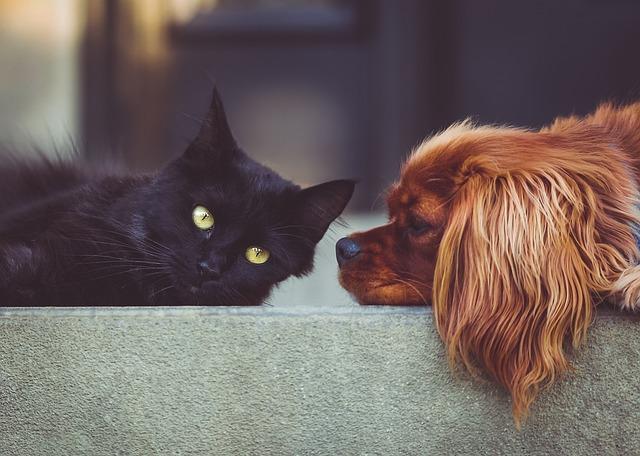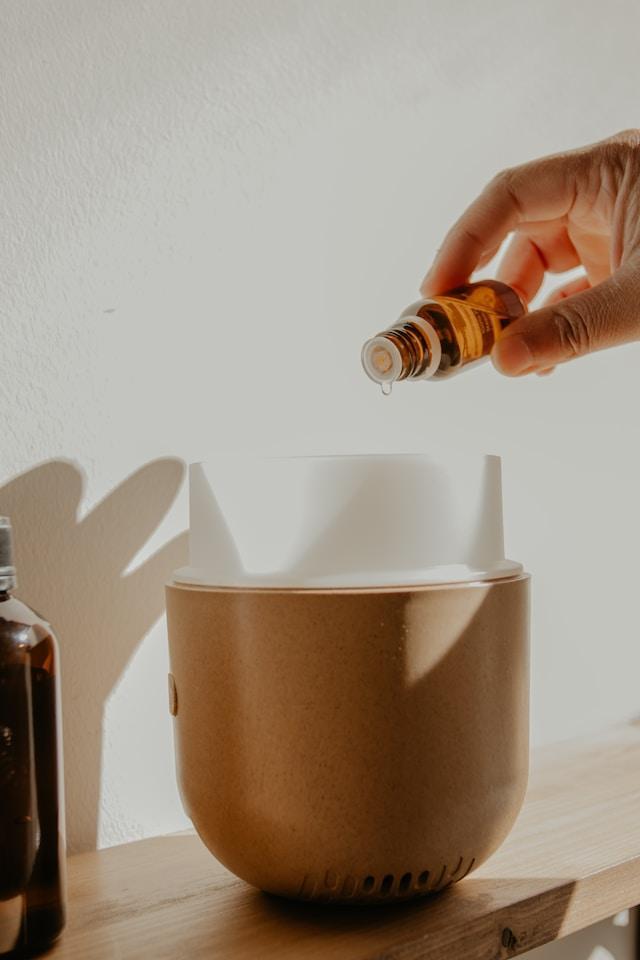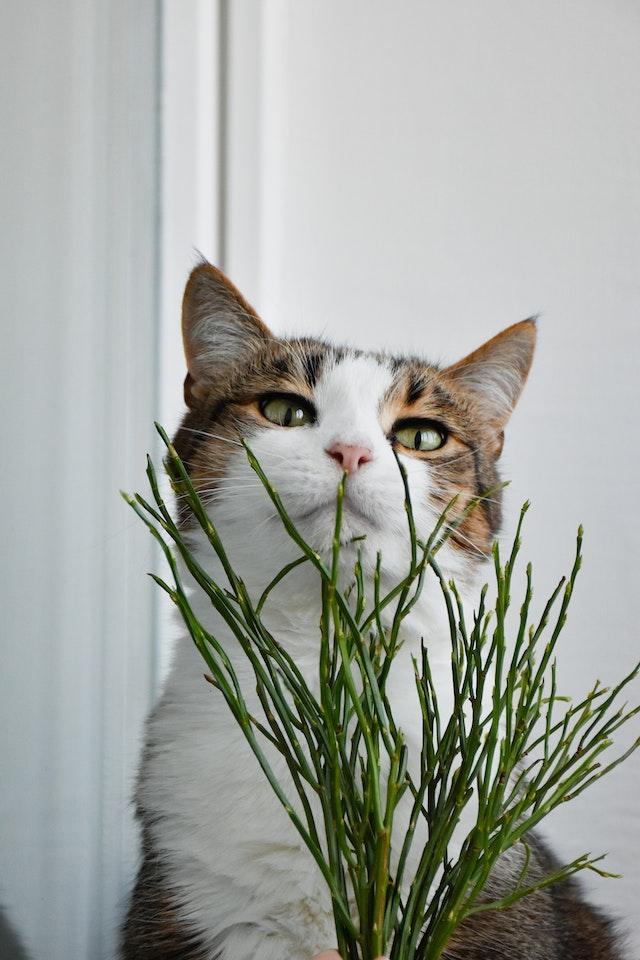
4 minute read
Chapter 1: Understanding Essential Oils and Their Benefits for Feline Health
Welcome to Chapter 1, where we'll dive into the fascinating world of essential oils and discover how they can work wonders for your cat's health and well-being. So grab a cozy seat, and let's embark on this aromatic adventure together!
1.1 What are Essential Oils?
Advertisement
Essential oils are highly concentrated, aromatic compounds derived from plants. They capture the plant's natural fragrance and therapeutic properties, which can have a profound impact on both humans and animals, including our feline companions. These oils are extracted through various methods, such as steam distillation, cold-pressing, or solvent extraction, ensuring that the potency and essence of the plant are preserved.
1.2 The Science Behind Essential Oils
It's fascinating to explore the science behind essential oils and their effects. When inhaled or applied topically, essential oils interact with our cat's olfactory system and skin, triggering physiological responses. The compounds in essential oils can affect the limbic system, which plays a vital role in emotions, behavior, and memory This explains why essential oils have the potential to influence our cats' mood and well-being.
1.3 Potential Benefits and Uses for Cats
Essential oils offer a range of potential benefits for cats. They can help promote relaxation, reduce anxiety, support respiratory health, aid in digestion, soothe skin irritations, and even boost the immune system. Each oil has its unique properties, and finding the right ones for your cat's needs can make a significant difference in their overall wellness.
1.4 Important Safety Considerations
While essential oils can offer numerous benefits, it's crucial to prioritize safety when using them with our feline friends. Cats have a unique metabolism, and certain essential oils can be toxic to them. Always choose oils that are safe for cats and ensure proper dilution before using them. It's also essential to introduce oils gradually and observe your cat's reaction to ensure they are comfortable and not experiencing any adverse effects.
Chapter 2: Essential Oils and Cat Care
Welcome to Chapter 2, where we'll explore the exciting ways essential oils can enhance your cat's care routine. From creating a safe environment to supporting their grooming and overall well-being, we'll cover it all. So, let's dive in and discover how these aromatic wonders can benefit your feline friend!
2.1 Creating a Safe Environment for Your Cat
Ensuring a safe environment is crucial for your cat's health and happiness. Essential oils can help in this regard by naturally repelling pests like fleas, ticks, and mosquitoes. Oils such as lavender, cedarwood, and lemongrass have been known to have insect-repellent properties, keeping those pesky critters at bay. Remember to use pet-safe formulations and consult with your veterinarian for proper application methods.
2.2 Using Essential Oils for Odor Control
We all want our homes to smell fresh and pleasant, and essential oils can be a fantastic tool for odor control. They can help neutralize unpleasant odors, leaving your home smelling delightful. Oils like lemon, peppermint, and eucalyptus can be used in diffusers or homemade sprays to freshen up the air. Just ensure the oils you choose are safe for your cat and that the scents are not overwhelming for their sensitive noses.
2.3 Enhancing Cat Grooming and Skin Health
Essential oils can play a role in maintaining your cat's grooming routine and promoting healthy skin. Some oils, such as chamomile and calendula, have soothing properties that can help alleviate skin irritations. You can create gentle grooming sprays or add a few drops of these oils to a carrier oil for massage. Always perform a patch test first and observe your cat's response to ensure their comfort.
2.4 Supporting Respiratory Health in Cats
Respiratory health is crucial for your cat's overall well-being. Essential oils like eucalyptus and frankincense have been traditionally used to support respiratory health. However, it's essential to remember that cats are more sensitive to certain oils, so consult with your veterinarian before using them. Inhalation methods, such as using a diffuser or steam inhalation, can be effective in providing a supportive environment for your cat's respiratory system.
2.5 Managing Stress and Anxiety in Felines
Cats can experience stress and anxiety due to various factors, such as changes in the environment or visits to the veterinarian Essential oils like lavender and chamomile are known for their calming properties and can help create a soothing atmosphere for your cat. However, it's important to introduce these oils gradually and observe your cat's response. Every cat is unique, and what works for one may not work for another
Chapter 3: Essential Oils for Common Feline Ailments
Welcome to Chapter 3, where we'll explore the exciting ways essential oils can support your cat's health by addressing common ailments. From digestive issues to joint discomfort, we'll discover how these natural remedies can provide relief and promote your cat's well-being. So, let's dive in and learn about the potential benefits of essential oils for your feline friend!
3.1 Addressing Digestive Issues
Just like humans, cats can experience digestive issues such as nausea, bloating, and diarrhea. Essential oils such as ginger and peppermint have been traditionally used to support healthy digestion. These oils can be diluted and applied topically to the abdomen or diffused in the air to create a soothing environment. It's important to consult with your veterinarian to ensure the appropriate oils and application methods for your cat's specific needs.
3.2 Boosting Immunity and Fighting Infections
Maintaining a strong immune system is vital for your cat's overall health. Essential oils like tea tree and oregano have antimicrobial properties that may help fight off infections and boost immunity However, it's crucial to note that cats can be more sensitive to certain oils, so consulting with your veterinarian is essential before using them. Always dilute the oils properly and use them sparingly.
3.3 Alleviating Joint and Muscle Discomfort
As cats age, they may experience joint and muscle discomfort, leading to reduced mobility and overall discomfort. Essential oils such as lavender and marjoram possess calming and soothing properties that can provide relief for your cat. Diluting these oils in a carrier oil and gently massaging them into the affected areas may offer comfort. However, it's crucial to observe your cat's response and consult with your veterinarian for proper guidance.
3.4 Promoting Healthy Coat and Skin
A shiny and healthy coat is a sign of a cat's overall well-being. Essential oils like chamomile and lavender can be beneficial for promoting healthy skin and a lustrous coat. You can create a diluted spray or add a few drops of these oils to a carrier oil for a grooming massage. However, always perform a patch test and monitor your cat's reaction to ensure they are comfortable and not experiencing any adverse effects.
3.5 Supporting Urinary Tract Health
Urinary tract issues, such as infections or discomfort, can be a common concern for cats. Essential oils like juniper berry and sandalwood have been traditionally used to support urinary tract health. However, it's crucial to approach these oils with caution and under the guidance of your veterinarian. Inhalation methods, such as diffusing, may be more appropriate for urinary tract support in cats.






